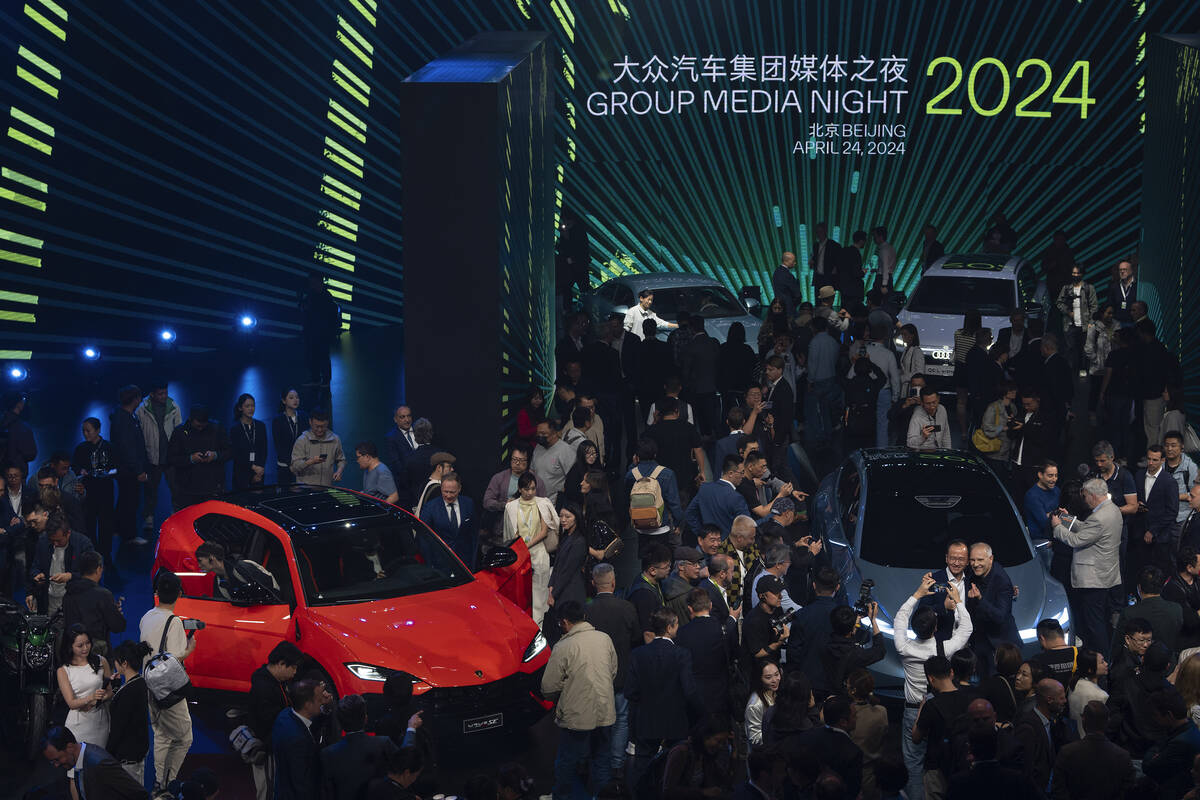COMMENTARY: Three problems with Biden’s China EV tariffs
The Biden administration announced it would raise tariffs on Chinese-made steel, aluminum, semiconductors, solar panels and EVs. This proposal has three major problems.
First, tariffs will make cars and energy less affordable during a time of high inflation. They cause economic pain that piles on top of inflation. Monetary inflation has raised prices by more than 20 percent since the Fed went on its pandemic money-printing spree. Biden’s new China tariffs will keep vehicle prices high and raise energy prices on top of the damage that inflation is already doing to people’s pocketbooks.
Second, tariffs also go against the Biden administration’s policy of expanding green technologies, such as getting more people to switch to EVs and solar panels. When the price of something goes up, people buy less of it. Economists call this the law of demand. Everyone else calls it common sense.
Existing tariffs mostly keep Chinese EVs out of the United States and let domestic EV makers keep their prices high. The new tariffs will make that existing problem worse and further prevent competition from making EVs affordable. People are going to buy fewer of them than they would otherwise.
Sure, the administration has put out a lot of words about getting people to adopt green technologies, but its actions are geared toward subsidizing politically connected U.S.-based businesses. These include EV manufacturers such as Tesla, Rivian and traditional automakers, as well as semiconductor and solar panel makers. Economists call this revealed preferences. Actions speak louder than words.
If you were to draw a Venn diagram with one circle containing the administration’s climate policy goals and the other circle containing green rent-seekers, there would be some overlap. But in places where the administration must choose political ideals or their cronies, rent-seeker cronies usually win.
The third big problem with Biden’s tariffs is the damage they will cause to America’s economy for years to come, regardless of which party is in power. Inertia might be the strongest force in politics. Once a policy is in place, it can take decades to undo it, even after large majorities agree that it has backfired.
We’re still stuck with the Jones Act of 1920, which imposes draconian shipping restrictions, despite its well-known harms to energy affordability and hurricane relief, as well as its benefits to hostile petrostates like Russia and Venezuela.
It took more than 50 years to shut down the inconsequential Board of Tea Experts, despite bipartisan heavyweights from Richard Nixon to Harry Reid entering the ring.
The reason we get stuck with bad policies is the conundrum of concentrated benefits and diffused costs. Tariffs benefit a small group of connected businesses, each collecting millions of dollars of benefits, giving them millions of reasons to hire lobbyists and donate to political campaigns.
Conversely, the cost of tariffs is spread among roughly 340 million Americans. To give an idea of just how thinly tariff harm can be spread, a billion-dollar tariff would cost each American about $3 on average, while, for example, 10 companies could each gain $100 million.
No average person is going to spend countless hours and thousands of dollars on political activism in order to save $3. So, while politicians hear pro-tariff voices every day, they rarely hear pro-market voices.
Ideology plays a role in tariff inertia, too. Donald Trump and Biden are both committed (if mistaken) protectionists, along with their advisers, from Robert Lighthizer to Katherine Tai.
Runaway executive branch power further strengthens inertia. Trump and Biden both enacted their tariffs without Congress having a say, while courts have mostly stayed on the sidelines.
Congress has the power to prevent unilateral presidential tariff-making and should use it. Not only should it pass legislation repealing the tariffs, it should repeal the decades-old provisions that delegated the president tariff-making authority he shouldn’t have in the first place. These include Section 232 of the Trade Expansion Act of 192 and Sections 201 and 301 of the Trade Act of 1974.
With so many moving parts all moving in the wrong direction, it is no surprise that bad policy is the norm in Washington. This is true even when it adds to the damage caused by the worst inflation in 40 years, when it contradicts the Biden administration’s own whole-of-government climate initiative, and when it locks in Biden’s predecessor’s signature economic policy.
Ryan Young is a senior fellow at the Competitive Enterprise Institute. He wrote this for InsideSources.com.

















